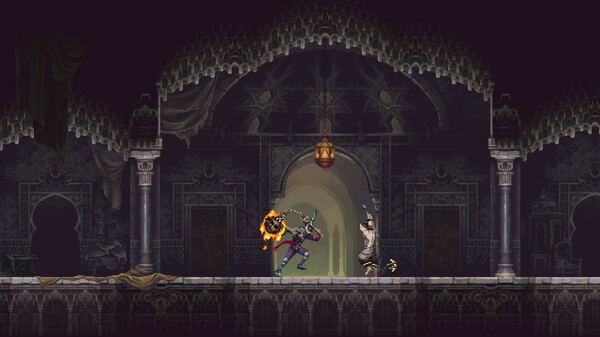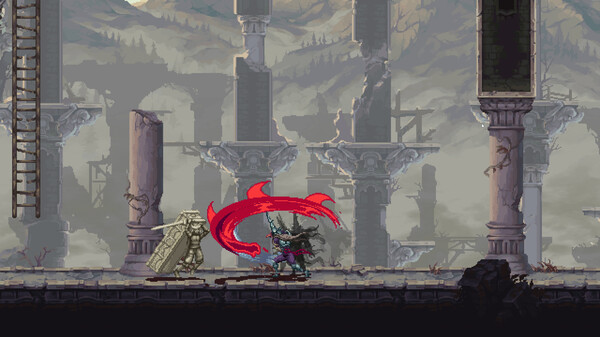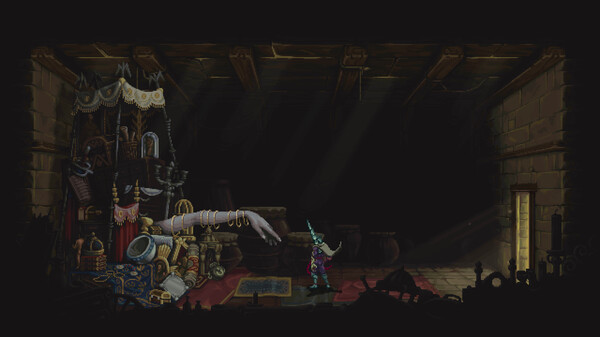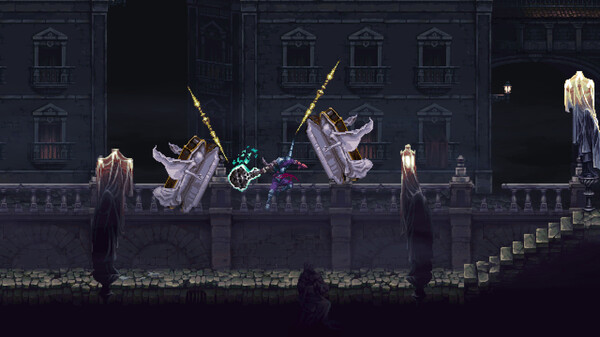Blasphemous 2 on Steam - User reviews, Price & Information
The Penitent One awakens as Blasphemous 2 joins him once again in an endless struggle against The Miracle. Dive into a perilous new world filled with mysteries and secrets to discover, and tear your way through monstrous foes that stand between you and your quest to end the cycle once and for all.
Blasphemous 2 is a combat, fantasy and metroidvania game
developed by The Game Kitchen
and published by Team17.
Released on August 24th 2023 is available only on Windows
in 11 languages: English, French, Italian, German, Spanish - Spain, Japanese, Portuguese - Brazil, Russian, Simplified Chinese, Traditional Chinese and Korean.
It has received 14,237 reviews of which 13,000 were positive and 1,237 were negative resulting in a rating of 8.9 out of 10. 😎
The game is currently priced at 9.89€ on Steam with a 67% discount, but you can find it for less on Gamivo.
The Steam community has classified Blasphemous 2 into these genres:
Media & Screenshots
Get an in-depth look at Blasphemous 2 through various videos and screenshots.
System requirements
These are the minimum specifications needed to play the game. For the best experience, we recommend that you verify them.
- Requires a 64-bit processor and operating system
- OS: Windows 10
- Processor: Intel Core 2 Duo E8400 or AMD Phenom II X2 550
- Memory: 4 GB RAM
- Graphics: NVIDIA GeForce GT 520, 1 GB or AMD Radeon HD 7470, 1 GB or Intel HD Graphics 4400
- Storage: 4 GB available space
User reviews & Ratings
Explore reviews from Steam users sharing their experiences and what they love about the game.
Similar games
View allFrequently Asked Questions
Data sources
The information presented on this page is sourced from reliable APIs to ensure accuracy and relevance. We utilize the Steam API to gather data on game details, including titles, descriptions, prices, and user reviews. This allows us to provide you with the most up-to-date information directly from the Steam platform.
Additionally, we incorporate data from the SteamSpy API, which offers insights into game sales and player statistics. This helps us present a comprehensive view of each game's popularity and performance within the gaming community.
Last Updates| Steam data | 01 February 2026 02:22 |
|---|---|
| SteamSpy data | 06 February 2026 16:28 |
| Steam price | 07 February 2026 04:47 |
| Steam reviews | 07 February 2026 08:01 |
If you'd like to dive deeper into the details about Blasphemous 2, we invite you to check out a few dedicated websites that offer extensive information and insights. These platforms provide valuable data, analysis, and user-generated reports to enhance your understanding of the game and its performance.
- SteamDB - A comprehensive database of everything on Steam about Blasphemous 2
- SteamCharts - Analysis of Blasphemous 2 concurrent players on Steam
- ProtonDB - Crowdsourced reports on Linux and Steam Deck Blasphemous 2 compatibility
























